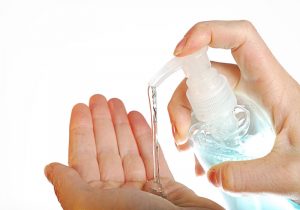
By Jack Yuen
SGS — a testing, inspection and certification company — works with manufacturers and suppliers of disinfectants, antiseptics, textiles, leather goods, plastics and furniture materials to help them assess the virucidal qualities of their products.
The 2020 COVID-19 pandemic brought about significant changes in the way we live and deepened our understanding of viruses. With the pandemic thankfully fading into the past, what can manufacturers do to ensure antiviral products continue to protect consumers?
Disease spread can be rapid in an interconnected world, crossing borders and significantly impacting global health and economies. Preventing virus transmission is difficult because disease can spread via several different vectors — aerosol, droplet, contact with a contaminated surface, etc. Alongside vaccination and the proper use of personal protective equipment (PPE), effective utilization of hygiene products, such as disinfectants, antiseptics and antiviral surfaces in public spaces, is crucial for reducing disease transmission.
Heightened Public Awareness
Public awareness of how easily viruses can spread via everyday items was enhanced during the pandemic. Personal experience meant consumers were suddenly aware of the real risks associated with viruses and the fact some pathogens can linger for extended periods on surfaces like office doors, kitchen countertops, mobile phones and clothing. This led to greater demand for products with proven antiviral properties.
Antiviral Testing
Trust in antiviral claims can only exist if the claim is backed by rigorous testing. Several antiviral efficacy standards exist enabling manufacturers to verify the claims they make relating to antiviral properties. However, not all standards apply to all products and so manufacturers are advised to work with expert testing laboratories to select the appropriate internationally recognized standard for their product.
Useful testing standards include:
- Disinfectants and antiseptics: EN 14476 assesses virucidal activity against common viruses like Vaccinia virus, Human adenovirus 5, Human poliovirus type 1, and Murine norovirus strain S99 Berlin. Viruses are incubated on test samples under specific conditions set by the manufacturer and standard, such as contact time and temperature
- Textiles: ISO 18184:2019 evaluates the antiviral activity of textiles against viruses like H1N1, H3N2 and Feline calicivirus. Virus particles are applied to textile samples and reference fabrics, incubated, and the remaining viral load is quantified to determine efficacy
- Plastics and non-porous materials: ISO 21702:2019 is used to assess the virus-stopping abilities of plastics and other non-porous materials. The testing process is similar to ISO 18184
These tests allow manufacturers to confirm the virucidal efficiency of their products, which is especially important when items are used by multiple people and the risk of pathogen spread is increased.
Additional Benefits
For manufacturers, ensuring product effectiveness is paramount. However, applying these stringent test methods to relevant consumer products offers additional advantages. As consumers become more aware of the risks of viral transmission via surfaces, products that demonstrate proven efficacy will gain greater consumer trust and help build a brand’s reputation. Testing also reduces liability and enables market differentiation.
SGS Solutions
Delivered through a global network of state-of-the-art laboratories, SGS’s testing solutions cover the full range of standards, including EN 14476, ISO 18184 and ISO 21702. Whatever the consumer product, SGS services help to ensure goods are safe, high-performing and market ready.

Editor’s Note: Jack Yuen is Health & Nutrition Sustainability Development deputy director at SGS. Geneva.
October 15, 2024




